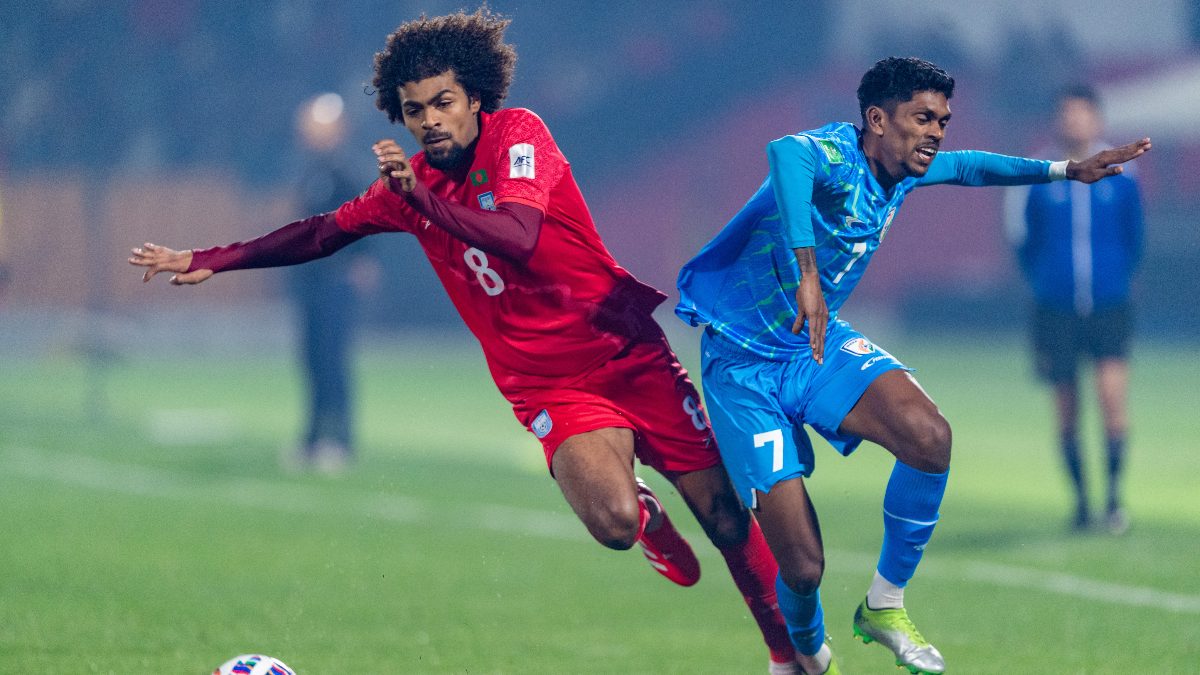Defensive midfielder Hamza Choudhury , currently on loan at Sheffield United from Leicester City, had represented England in youth football, making seven appearances for the U-21 side between May and June in 2018, and had harboured ambitions to represent the ‘Three Lions’ someday.
The massive competition for places in the senior English squad, however, means only a handful of individuals get to represent the football-mad nation. For Choudhury, born to a Grenadian father and Bangladeshi mother, it meant he had to look elsewhere to fulfill his ambition of playing international football with his hopes of playing for England fast drying up.
Having grown up in a Bangladeshi household, it came as no surprise that he decided to represent his mother’s country of birth. And last Tuesday, seven months after acquiring a Bangladeshi passport, Choudhury made his debut for the Bengal Tigers during the Asian Cup qualifying game against India in Shillong, which ended in a goalless draw.
India initially were the favourites heading into the contest, with the legendary Sunil Chhetri coming out of international retirement to try and ensure a third consecutive Asian Cup appearance for the Blue Tigers. However, the presence of an individual who had excelled in the Premier League with Leicester City and was part of the side that won the 2021 FA Cup did put the Bangladeshis on an equal footing, if not favourites.
The question for the All India Football Federation (AIFF) therefore, is: If Bangladesh can, why can’t India? Why can’t the Blue Tigers get a Hamza Choudhury of their own? 4
Why Indian origin players cannot represent the Blue Tigers
Bangladesh isn’t the only south Asian nation to have a footballer of British origin in their ranks; the Pakistan football team is full of players born in the United Kingdom who chose to play for the country of their origin, including Otis Khan – who had begun his senior career with Sheffield United, Choudhury’s current club.
However, the reason why Persons of Indian Origin (PIOs) don’t represent the Blue Tigers is simple – while nations like Bangladesh and Pakistan offer dual citizenship, India doesn’t. And in order to represent India in football, a player will have to renounce his/her existing citizenship.
Current FIFA laws state that players must acquire the passport of the nation that they want to represent if they are to switch allegiances in international football.
And giving up their original passports for an Indian one could lead to complications when it comes to their ambitions of representing European clubs as India’s lowly FIFA ranking (currently 126th) makes it difficult for them to acquire a work visa.
)